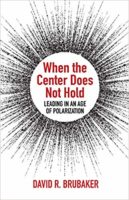Why is conflict so common in congregations? When we ask people what they are fighting about their responses focus on the usual suspects—members’ behavior, money, worship, leadership style, and decision-making. But are these really the deepest causes of congregational conflict?
This question is important, because conflict is pervasive in congregational life. In a five-year period, some 45% of congregations experience conflict “significant enough to convene a special meeting or call in outside help.” It’s not unreasonable to estimate that up to 70% of congregations will experience significant conflict over a 10-year period.
I’d like to propose five top underlying causes of congregational conflict, based on my consulting experience and conversations with other congregational consultants. I offer this list not as a definitive accounting, but rather to continue a conversation about root causes. We cannot effectively transform congregational conflict until we get to its roots. Here goes…
#1 Struggles Over Power and Authority
Whether it’s a conflict between the senior minister and the associate minister or between two groups in the congregation, a struggle over power and authority seems to be at the heart of most congregational conflicts. This is not a negative observation as every human being needs to feel some power–and how we allocate authority and accountability are crucial organizational questions. But I find it helpful to acknowledge the extent to which power and authority are contested in many congregational conflicts.
#2 Ineffective Change Management Strategies
Although my own research found that changes to worship and to decision-making correlate with conflict in congregations, an analysis of the qualitative comments revealed that the reasons for the conflict focused primarily on “process.” A common expression I hear in congregations after a contested change management experience is “it’s not so much what they did…it’s how they did it.” I’ve written on successful change management strategies, and the bottom line is that without sufficient time, a supportive team, and the right tone, congregational changes normally bring more heat than light.
#3 Insufficient Emotional Intelligence
Leaders set the tone in any human system—whether a family, a congregation, or a country. Leaders who are defensive and reactive create chaos and conflict in any system—and particularly in congregations, where members have reason to expect grace and understanding from their leaders. A leader’s defensive response to criticism, for example, breeds resentment and alienation among congregants. Effective congregational leaders learn how to respond to all members—mature and immature alike—with civility and integrity.
#4 Unresolved Personal and Corporate Trauma
During my first decade of consulting, I overlooked the role of unresolved personal and corporate trauma in congregational life. But in recent years it’s become evident that trauma is the “glue” that keeps many congregations stuck in cycles of reactivity and conflict. Increasing attention is now being paid to helping congregations become more “trauma-informed,” especially those that have experienced major traumatic events. When we don’t address the trauma in our midst, we invite ongoing cycles of conflict.
#5 Differing Theological Understandings
While many would rank this issue “first” in a list of the root causes of congregational conflict, my own experience is that is a common “presenting cause” but a relatively rare “root cause.” The current conflicts over how to include LGBTQ individuals in the life and leadership of many traditions are critically important, but in my view are driven more by struggles over authority (e.g., who has the right to interpret Scripture), difficulties in managing change, and unresolved trauma in ourselves and our institutions. Scripture may be the weapon of choice in our multiple conflicts, but it’s seldom the true cause of the battle itself.
This list is clearly incomplete, as we could easily add five more “root causes” of congregational conflict. But I propose that we would be better served if we talked less about “money, sexuality and behavior” and more about “authority, change and trauma.” It’s not that money, sexuality, and behavior don’t matter—they clearly do. It’s rather that the underlying issues are deeper yet. These are the questions I encourage congregations to address when they need to work through deep-rooted conflict:
- How do we view authority and accountability in our congregation? Who has authority, what kind of authority do they have, and to whom are they accountable?
- How do we manage change in our congregation? What do we believe about the importance of listening and participation in change processes? Do we value our “agents of stability” as well as our “agents of change?”
- How do we understand trauma at both the individual and congregational level? Are we working to become a trauma-informed congregation? Do we provide healing rituals and processes for individuals and groups that have experienced trauma?
- How do we encourage leaders and members to develop their emotional intelligence? Are we creating a culture of dignity and respect for all participants in our congregational life? Do we intervene when individuals violate shared norms and values?
Differing theological understandings may indeed be insurmountable when we lack a shared understanding of power and authority, when we manage change poorly, when we’re overcome by unresolved past trauma, and when we’re tripped up by our own reactivity. But when the pillars of our congregational systems are strong, disagreements can be expressed and conflict managed without escalation. If we want to keep the roof from caving in, we need to strengthen those congregational pillars.
David Brubaker has consulted with organizations and congregations in the U.S. and a dozen other countries on organizational development and conflict transformation. He is the author of Promise and Peril, on managing change and conflict in congregations, and When the Center Does Not Hold, on leading in an age of polarization. David recently retired from his role as Dean of the School of Social Sciences and Professions at Eastern Mennonite University, and is now a Professor Emeritus of Organizational Studies.



